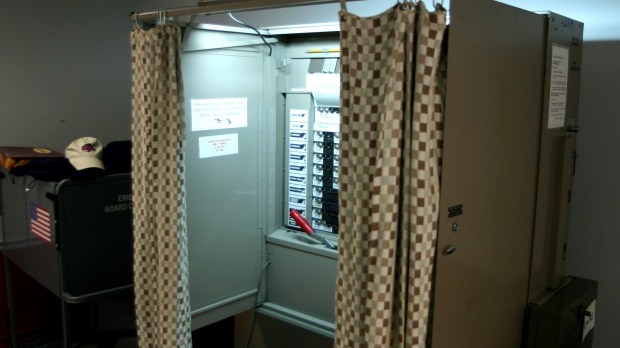Deacon Bill Ditewig revisits an important subject that often arises during an election year: clergy and political involvement.
He has a lot of good points to make, and highlights three areas too many of us conveniently overlook or ignore:
- Clergy and Social Media:Clergy of all faiths are prominent in their use of social media and are blogging, tweeting, writing, speaking and teaching at every conceivable level, and even venues formerly considered more informal, such as Facebook. It is important to reflect on our own participation in such exchanges in light of our responsibilities as clergy. It is often not what we say, or don’t say, from the pulpit that can influence others, but our casual “status update” on Facebook, a blog entry or even a tweet can have far-reaching effects.
- Catholic Clergy and Canon Law: Canon 285 directs that “clerics are to refrain completely from all those things which are unbecoming to their state, according to the prescripts of particular law.” The canon continues in §3: “Clerics are forbidden to assume public offices which entail a participation in the exercise of civil power,” and §4 forbids clerics from “secular offices which entail an obligation of rendering accounts. . . .” Canon 287, §1 reminds all clerics that “most especially, [they] are always to foster the peace and harmony based on justice which are to be observed among people,” and §2 directs that “they are not to have an active part in political parties and in governing labor unions unless, in the judgment of competent ecclesiastical authority, the protection of the rights of the Church or the promotion of the common good requires it.” However, c. 288 specifically relieves permanent deacons (transitional deacons would still bound) of a number of the prior canons, including cc. 285 §§3 and 4, and 287 §2, “unless particular law establishes otherwise.” Particular law in this instance is provided by the National Directory on the Formation, Ministry and Life of Permanent Deacons in the United States, which states at #91: “A permanent deacon may not present his name for election to any public office or in any other general election, or accept a nomination or an appointment to public office, without the prior written permission of the diocesan bishop. A permanent deacon may not actively and publicly participate in another’s political campaign without the prior written permission of the diocesan bishop.” While we are each entitled to form our own political decisions for ourselves, we must always be aware of the political lines we must not cross. Much more about this can be said and I will review all of this in more detail in a later posting.
- Unique Political Position for Catholic [Permanent] Deacons: As we just saw, permanent deacons may participate in political life to a degree not permitted other clerics (including transitional deacons) under the law. However, permanent deacons are required by particular law in the United States to obtain the prior written permission of their diocesan bishop to do so. I find that two other aspects of this matter are too often overlooked. First, is the requirement under the law that all clerics (and, significantly, permanent deacons are not relieved of this obligation) are bound by c. 287 always “to foster peace and harmony based on justice.” This is such a critical point for reflection for all clerics: How do my actions, words, and insinuations foster such peace and harmony, or are my actions serving to sow discord and disharmony? Second is the whole area of participation in political campaigns. Deacons may only participate in their own or someone else’s political campaign with the prior written permission of their bishop. Today, when political support is often reflected through the social media, all of us might well reflect on how our opinions stated via these media constitute active participation in someone’s political campaign.
There’s much more important food for thought. Read the whole post.
Photo: Wikipedia

